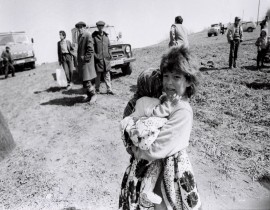Politicon.co
Factors leading to positive peace in Azerbaijan-Georgia relations
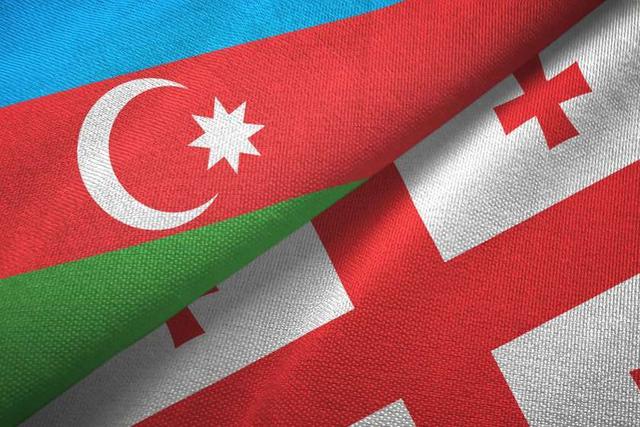
Azerbaijan-Georgia relations is a paradoxical phenomenon in itself. This paradox manifests itself in the absence of conflict. Thus, traditional approaches in conflict science suggest that the parties can resort to violence based on their ethnic and religious differences. Academic circles usually study the causes of conflict, therefore, studies focusing on the absence of conflict in Azerbaijan-Georgia relations are lacking.Since the collapse of the USSR, the states and societies of Azerbaijan and Georgia have mutually formed their relations on the basis of positive values. Most of the different nations brought together by the Soviet state, as soon as they saw the absence of a center, entered into conflicts by forming a discourse of ethno-cultural differences for getting hold of limited resources. The best example of this is the Azerbaijan-Armenia conflict. However, religious and cultural differences, which are the cause of conflict in most of the relations of post-Soviet countries, have not been able to show their conflict-creating manifestation here. In the Balkans, where ethno-political conflicts are prevalent in modern times, we can also see similar aspects between the states as in Azerbaijan-Georgia (ethnic, religious differences, common history, etc.). However, if ethnic and religious diversity creates conflict in the countries of the former Yugoslavia, it leads to positive peace in Azerbaijan-Georgia relations.
These two societies, which went through common historical processes, played a leading role in each other's fate. Azerbaijani educators worked in Tbilisi, and the Azerbaijan Democratic Republic was proclaimed in Tbilisi. At the same time, Alimardan bey Topchubashov, a Georgian Azerbaijani, fought together with the Georgians against Tsarism and Russian imperialism. In 1919, during the reading of the Georgia-Azerbaijan mutual defense agreement, Mammad Yusif Jafarov voiced these thoughts: "It is possible that Georgia and Azerbaijan will lose their freedom. But they will live together in the neighborhood. This treaty will have a future effect for the two neighboring republics. This treaty may also have great consequences. Previously, during the time of Tsar Nicholas, we were looked at as if the nations of the Caucasus could not live together. They would like to kill each other by the throat. This treaty shows that when the nations of the Caucasus are in danger in a bad time, they can put aside all their internal issues and live and die together in equality and solidarity."[1]
There is a fair amount of mutual trust between Azerbaijani and Georgian citizens. A 2021 survey conducted in Georgia by the Caucasus Report shows that 75% of respondents support doing business with Azerbaijanis[2]. The last time the same survey was conducted in Azerbaijan was in 2013, and the figure was 78%[3]. In the political arena, Georgia and Azerbaijan have cooperation agreements in many areas. It is also becoming a tradition for Georgian prime ministers to make their first high-level visits to Azerbaijan after their election. There are various reasons for the positive development of Azerbaijani-Georgian relations. We can initially point to these reasons as education, protection of ethnic minorities, and interdependence. Thus, Georgian Azerbaijanis, who are the second largest ethnic group in Georgia after Georgians, can study in Azerbaijani and complete secondary school wherever they live. There is also political cooperation between Azerbaijan and Georgia in combating ethno-political separatism. The parties' cooperation in the energy sector leads to the creation of conditions of interdependence. Based on all this, we can argue that the positive development of Azerbaijani-Georgian relations is influenced by the presence of ethnic minorities, as well as the protection of their rights such as education, citizenship, and mutual economic dependence.
Theoretical framework:
A narrow view of the region, with traditional international relations theories and concepts, might dictate that Azerbaijan and Georgia must be in a state of conflict. Let's define what we mean by this narrow view.
Structural realism:
The main premise of this theory is that states struggle for power to protect their existence, and the course of all these processes is determined by an anarchic system[4]. If we proceed from this theory, the foreign policies of Azerbaijan and Georgia, that is, countries that are not important in the international distribution of power, should be based on dictates, and these two states, which are oriented towards different centers, should enter into conflict with each other. However, in practice, we see the opposite happening. Thus, at a time when Georgia is pursuing a policy of direct integration into the West and distancing itself from Russia, we see that Azerbaijan supports Georgia to a limited extent, especially during the Russian intervention in August 2008. In addition, it would not be wrong to suggest that cooperation between Azerbaijan and Georgia plays a key role in ensuring the economic security of both sides.
Neoliberalism:
The three main tenets of neoliberalism are: Institutional (organizational), interdependence, and democracy. In fact, we can find institutional and interdependent tendencies in Azerbaijan-Georgia relations. Although Azerbaijan’s lean towards authoritarianism and Georgia’s democratic governance do not coincide when it comes to democracy, the oil and gas pipelines that play a fundamental role in Azerbaijan-Georgia relations can be considered interdependence, and its reflection in an organization like GUAM can be considered institutional.
Post-structuralism (social constructivism):
If we briefly look at the relations of the region from the position of another theory, social constructivism, we can see this picture. First of all, let us note that A. Wendt, who is considered one of the main experts of this approach, puts forward 3 types of anarchy: Hobbesian, Lockean and Kantian anarchy. In short: Hobbesian - states enter into conflict to destroy each other, Lockean - states enter into conflict, but for more specific goals and in an orderly manner. Kantian - It has the character of cooperation based on interdependence and regimes[5]. Based on this, we can suggest that Kantian anarchy prevails in Azerbaijan-Georgia relations, and Lockean anarchy prevails in the Azerbaijan-Armenia conflict.
Clash of Civilizations:
When comparing two different states from the perspective of ethno-political differences, it is also necessary to consider S. Huntington's "Clash of Civilizations" concept. Thus, according to S. Huntington's "Clash of Civilizations" theory, which caused quite a sensation, in the "post-ideological" period, that is, after the defeat of communism, conflicts will occur between the West and others, and the Islamic world will become aggressive and come into conflict with the West and its surroundings.[6] If we look at the geopolitical division in that concept, we can see that Georgia and Armenia are attributed to the Orthodox civilization, and Azerbaijan to the Islamic civilization. The book even mentions the Azerbaijan-Armenia conflict as an example of a clash. Here the question arises, why is Azerbaijan in a state of conflict with Armenia, while it is in a state of good will coexistence with Georgia, while both belong to the Orthodox civilization? If Huntington were here, I am sure he could give a complete answer to this question, but in the following sections of the article we will try to clarify the issue by addressing the issues we mentioned earlier.
1. Education
Education is a key factor in the relations between Azerbaijani and Georgian societies. The right to education in one’s native language, which is one of the first issues emphasized when talking about ethnic minority rights, is ensured by the parties. This is reflected in the “Law on Education” adopted in Georgia in 2005: Georgian citizens whose native language is not Georgian have the right to receive full secondary education in their own language in accordance with the national curriculum, as provided for by the legislation[7]. The “Law on Education” of Azerbaijan[8] does not have such an article, but the article on the language of instruction states: The language of instruction in educational institutions of the Republic of Azerbaijan is the state language - the Azerbaijani language. Regarding education in another language, there is this article: Taking into account the wishes of citizens and the founders of educational institutions, in accordance with the international agreements to which the Republic of Azerbaijan is a party or the agreement with the body (institution) determined by the relevant executive authority, teaching in educational institutions can be conducted in other languages based on the relevant state educational standards or educational programs accredited at the international level. Azerbaijani language, literature, history and geography should be taught in general education institutions where education is conducted in other languages.
Now that we've looked at the legislative framework, let's take a look at how it works in practice:
Indeed, there are Azerbaijani-language schools in provinces dominated by Azerbaijanis who are citizens of Georgia. According to media reports, there are currently 116 Azerbaijani-language schools in Georgia, most of which are in the Kvemo-Kartli region. In 2020-2021, 25,312 students received education in the Azerbaijani language[9]. It should be noted that the textbooks of the aforementioned Azerbaijani-language schools are provided by the Republic of Azerbaijan, and the teaching of Georgian as a second language is mandatory in the educational process for young people to integrate into Georgian society in the future. In Azerbaijan, the situation is somewhat different. According to the 2022 report of the Ministry of Science and Education of Azerbaijan, 1,119 students received education in Georgian in 108 classes in the republic. This statistic is understandable given the small number of individuals of the Georgian-Ingiloy ethnic minority in Azerbaijan. Finally, it should be noted that regular meetings are held between the “education ministries” of Azerbaijan and Georgia, and cooperation agreements are signed, the last of which was in 2022.[10] All this indicates that the parties are successfully cooperating in the field of education, which is one of the most important factors in coexistence. As a result of this successful cooperation, a state of trust is being formed between the communities, which learn each other’s language and culture along with their own.
2. Ethnic composition of the states:
Statistical indicators: According to the last population census in Azerbaijan in 2019, 9,436,100 people - 94.8% of the population are Azerbaijanis, 8,400 people - 0.1% are Georgians, mainly settled in Gakh and bordering regions.
In Georgia, the 2014 census showed the following figures for ethnic minorities: 3,224,564 people - 86.8% of the population are Georgians, followed by Azerbaijanis with 233,024 - 6.3%.
From this it becomes clear to us that although there are Georgian people within Azerbaijan, this presence is minimally reflected in demography. On the contrary, in Georgia, Azerbaijanis are the most numerous population group after Georgians. Let us take a look at the policies of the states towards these population groups.
The rights of ethnic minorities in the Republic of Azerbaijan[11] are protected on a constitutional basis. Thus, Article 25 of the Constitution of Azerbaijan states: 25.3: The State guarantees the equality of rights and freedoms to everyone, regardless of race, ethnicity, religion, language, sex, origin, property status, membership in political parties, trade unions and other public associations. In addition, there is also the Multiculturalism-state policy of Azerbaijan, which is based on the provision of rights and freedoms of ethnic minorities. However, despite all this, it is emphasized that Azerbaijan pursues an assimilative policy towards ethnic minorities and that there are problems in ensuring their rights. For example, the problems of the Georgian community settled in Gakh, which were highlighted in the 4th advisory package of the Council of Europe “Advisory Committee on the Framework Convention for the Protection of Ethnic Minorities”[12] , with the opening of new churches and the imposition of time limits for worship.
What is the situation in Georgia?
The basis for minority rights in Georgia is established by a constitutional article similar to that in Azerbaijan. This article: 11. All individuals are equal before the law. Any discrimination based on race, color, sex, origin, ethnic origin, language, religion, political or other opinion, social affiliation, property or title, place of residence or any other status is prohibited.
In accordance with the generally accepted principles and norms of international law and the Legislation of Georgia, citizens of Georgia, regardless of their ethnic, religious or linguistic affiliation, have the right to preserve and develop their culture, as well as to use their native language in private and public life without any discrimination.
There are a number of problems in ensuring the rights of minorities in Georgia. The most highlighted of these are the obstacles created to the construction of new mosques. In addition, the problems of Georgian Azerbaijanis such as changing their surnames, learning the state language, and being represented in the public sphere have also been raised by relevant civil society.[13]
Despite the listed problems, the peaceful coexistence of Azerbaijani and Georgian communities has always been one of the factors influencing the foreign policy courses of the states, and special attention has been paid to their visits in the speeches and visits of state officials. In fact, the reason for this success can be justified by the asymmetric contingent of ethnic minorities. Thus, as the above-mentioned statistics show, although the number of Azerbaijanis in Georgia is quite large, the demographic share of Georgians in Azerbaijan is not similar. As a result, Georgia's sensitive approach to Azerbaijanis prevents Azerbaijanis from seeing Georgia, which belongs to a different Christian-European civilization from them, as a threat. In the case of the conflict situation of Azerbaijan-Armenia, the symmetry of ethnic minorities ultimately resulted in one of the parties resorting to centrally supported separatism, and the other leaving the territory en masse. If we look at Georgia in the 1990s, we can argue that the nationalist Gamsakhurdia government's "Georgia for Georgians" discourse resulted in uprisings in Abkhazia, and increased tensions with Azerbaijanis in the Kvemo-Kartli region. However, in the end, as a result of the efforts of the government circles of the parties, this tension was reduced, and relations between the Shevardnadze-Aliyev tandem continued positively. Realizing that Georgia is the most convenient way to encircle Armenia, Azerbaijan has come to the conclusion that inciting Georgian Azerbaijanis or any irredentist ideas will be a zero sum game. In the next paragraph, we will touch on interdependence, which is the leading external factor in Georgian-Azerbaijani relations, based on the conclusions we have reached so far.
3. Interdependence:
One of the main tenets of liberal peace theory, interdependence (see: Kant's triangle), can be observed in Azerbaijan-Georgia relations. First, let's define what we mean by interdependence: The concept of complex interdependence, a term of the neoliberal paradigm, was put forward by R. Keohane and J. Nye. According to the idea put forward, with globalization and the increase in international trade, the formation of international relations is moving from "high politics" - issues of security and survival to "low politics" - economic and social issues[14]. The development of this trend should prevent current and potential conflicts. Because, states that are rational actors can get rid of the "prisoner's dilemma" if they understand that war is destructive for both sides and interact with each other.
But how does interdependence manifest itself in the relations between Azerbaijan and Georgia?
First of all, we should emphasize the transport corridors from the Azerbaijani side. The Republic of Azerbaijan, which has large oil and gas reserves, does not have direct access to the oceans and seas. The Western world needs fossil fuels. Currently, Azerbaijan has 1 convenient option for resource access to the West. Russia and Iran are excluded from the list due to sanctions, and the conflict situation with Armenia forces Azerbaijan to cooperate with Georgia. Thus, the process of exporting Azerbaijani oil to Western markets began with the Baku-Supsa oil pipeline, which began operating in 1999. Later, these projects continued with the Baku-Tbilisi-Ceyhan pipeline, which began operating in 2006, and the Baku-Tbilisi-Erzurum pipeline, which began operating in 2007. The TANAP and TAP projects, in turn, continue to play an important role in Azerbaijan's oil strategy. If you look at the geography through which all these projects pass, you will see that they all pass through the territory of Georgia. None of these projects could have been implemented if Georgia had not given permission. Azerbaijan, like Turkmenistan, could be forced to sell its natural resources to its neighbors at low prices. Another statistic to understand the importance of oil and gas pipelines: According to 2022 statistics, 92.5% of Azerbaijan's export revenues and 47.8% of GDP belong to the oil and gas sector.[15]
What does Georgia gain from this? First of all, considering Georgia’s conflict with Russia, purchasing oil and gas from Azerbaijan contributes to ensuring Georgia’s energy security. In addition, Georgia takes full advantage of the preferential terms offered to it by Azerbaijan in terms of oil and gas prices. Finally, we can note that Azerbaijani companies, led by SOCAR Georgia, occupy a significant place in the list of the largest taxpayers and investors in Georgia.[16] From this we see that the Georgian-Azerbaijani interdependence has a fairly solid basis. It can be argued that Azerbaijan is in a more advantageous position as a resource source country, but for Georgia, Azerbaijan is a shield of defense against possible threats from the south, a bridge to Central Asia and the Muslim world both geographically, politically and economically, and contributes to economic stability thanks to its energy resources. For Azerbaijan, Georgia is the main transit route to Europe, a shield of defense against possible threats from the north, and a guarantor of Europe’s interaction with the countries of the South Caucasus.[17]
Conclusion:
From what has been mentioned in this article, it becomes clear to us that the formation of Azerbaijan-Georgia relations in a positive peaceful environment, based on Kantian anarchy, is influenced by education, protection of ethnic minorities and mutual economic dependence. Despite the fact that various theoretical approaches, especially the “Clash of Civilizations”, dictate that these two countries belonging to different civilizations should be in a state of conflict, we observe the absence of conflict. Long-term cooperation in the education sector, the ability of Georgian Azerbaijanis in Georgia and Georgian-English people to receive education in their own languages directly contribute to the formation of inter-communal dialogue and, consequently, to the sustainability of cooperation. The protection of the rights and freedoms of ethnic minorities, the freedom of religious belief and self-expression, despite some restrictions, also lead to cooperation of the parties and the existence of a climate of mutual trust. The positive manifestation of the asymmetric nature of ethnic minorities in relations is emphasized. Also, considering that both sides suffer from separatism, the sensitivity of both sides on this issue leads to joint action. Finally, interdependence is emphasized, in which we can note that both sides play a leading role in each other's security system. The fact that Azerbaijan's energy corridors pass through Georgia and Georgia plays the role of a gateway to Europe plays a fundamental role in shaping the policy of strategic partnership and friendship for Azerbaijan, while the fact that it is a favorable alternative to Russia in obtaining energy resources and plays a leading role in relations with Turkey and Central Asia plays a fundamental role in shaping the policy of strategic partnership and friendship for Georgia. Although we cannot say which of these plays the leading role, we can note that all three are in mutual influence.
[1] AZERBAIJAN DEMOCRATIC REPUBLIC/(1918-1920) /Parliament (Stenographic reports) Volume I/ 331
[2] https://caucasusbarometer.org/en/cb2021ge/BUSINAZE/
[3] https://caucasusbarometer.org/en/cb2013az/BUSINGEO/
[4] K.Waltz/Theory of International Politics/1979
[5] A. Wendt/ Social Theory of International Politics/1999
[6] S. Huntington/ The Clash of Civilizations and the Remaking of World Order/1996
[7] https://matsne.gov.ge/en/document/download/29248/68/en/pdf /Article 4.3
[8] https://natlex.ilo.org/dyn/natlex2/natlex2/files/download/83429/AZE-83429.pdf/ 7.1; 7.2
[9]https://report.az/en/foreign-politics/4-azerbaijani-language-schools-closed-in-georgia-over-past-2-years/
[11] (For more information on the rights of ethnic minorities in Azerbaijan: K. Gayibov. (2023) Regulation of the rights of ethnic minorities in Azerbaijan. Baku Research Institute)
[12] https://rm.coe.int/4th-acfc-opinion-on-azerbaijan-english-language-version/1680923201
[13] The International Covenant on Civil and Political Rights: Violations by Georgia of the rights of the ethnic minority Azerbaijani community/2022
[14] R. Keohane, C. Nye/ Power and Interdependence/1977
[15] https://www.trade.gov/country-commercial-guides/azerbaijan-market-overview
[16]https://faktyoxla.info/en/economy/ilham-aliyev-azerbaijan-is-the-first-or-second-largest-investor-in-georgia-or-the-first-or-second-largest-taxpayer
[17] (Shiriyev.Z & Kakachia.K (2013) Azerbaijani-Georgian relations: The foundations and challenges.) SAM Review Special Double Issue | Volume 7-8, July 2013 p.1
![]()
- TOPICS :
- Domestic affairs
- Geopolitics
- History
- REGIONS :
- Russia and CIS



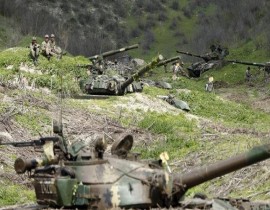
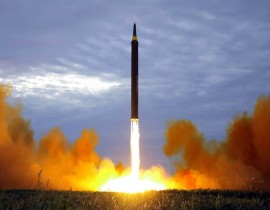
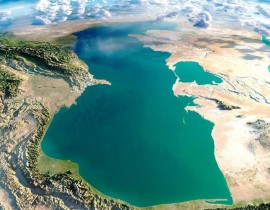
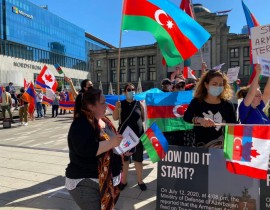
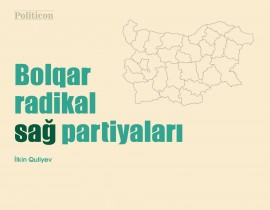
jpg-1599133320.jpg)
